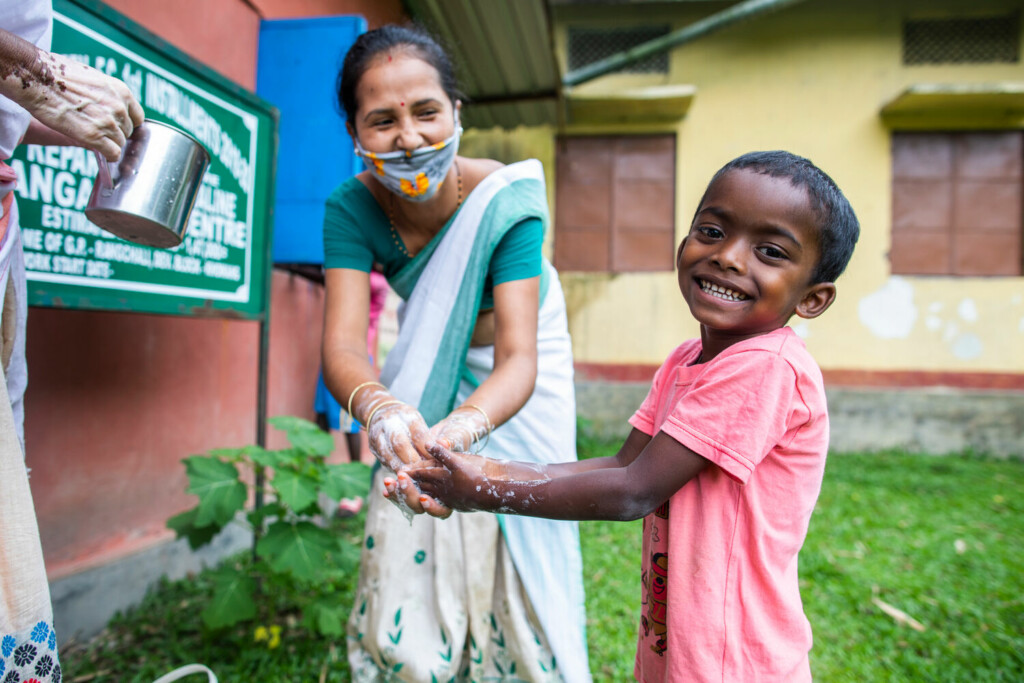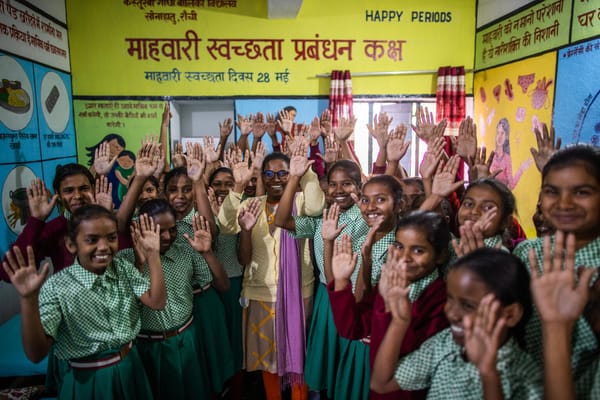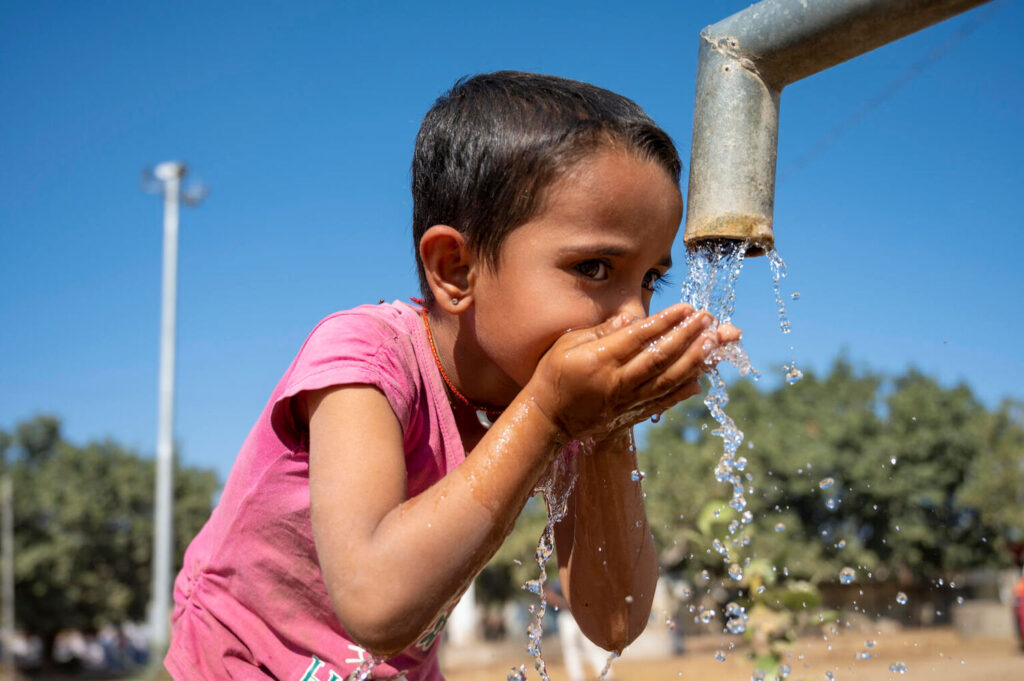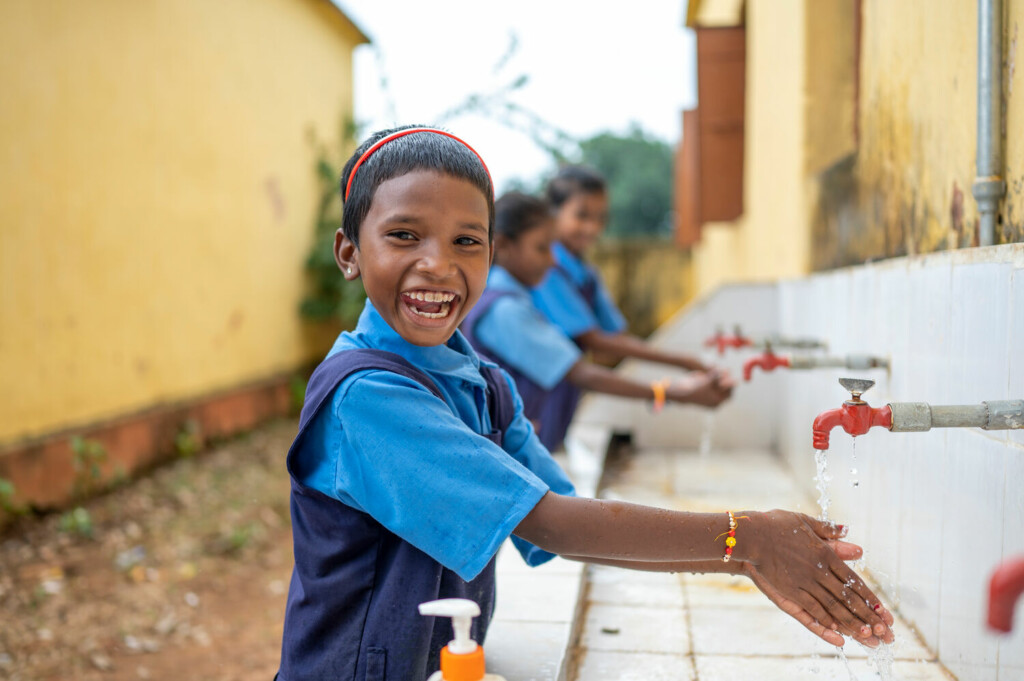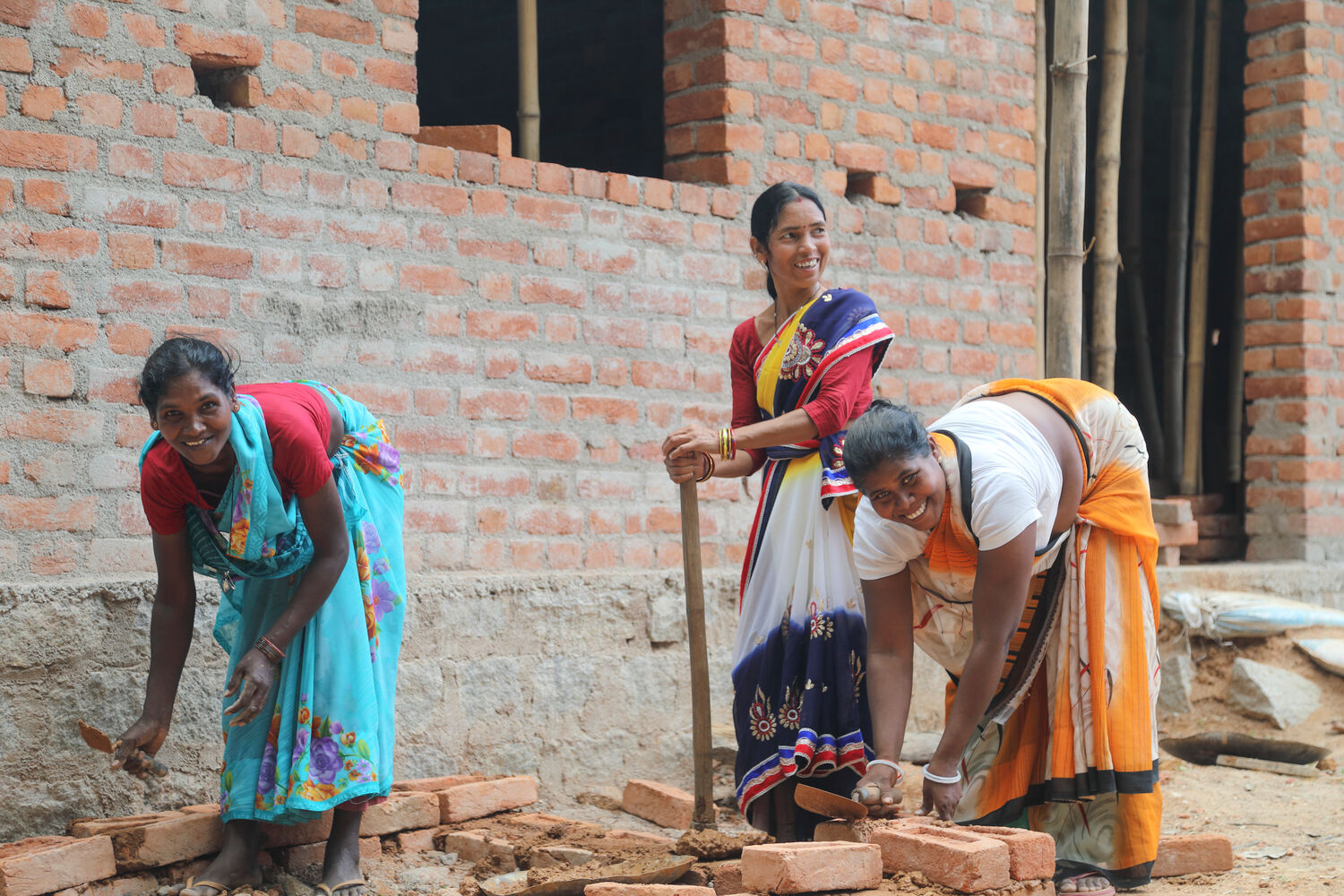
Mangalajodi’s resilience: confronting the effects of climate change in India
Climate change is a growing global concern that affects everyone, but its biggest impact is felt in countries like India. Here, climate-resilient Water, Sanitation, and Hygiene (WASH) strategies are important in addressing the effects of climate change. UNICEF plays a role in implementing these strategies, but it is not doing it alone.
Marja Riitta Ketola, Executive Director of the Finnish Committee for UNICEF says, “With the support of long-term partners like Lindström, it has been possible for UNICEF to secure that millions of children in India have a better future ahead.”
To see how the collaboration with UNICEF and UNICEF Finland donors like Lindström in the WASH programme is leading to real benefits for people, take the case of Mangalajodi, a picturesque village in the Indian state of Odisha suffering from the effects of climate change. According to a UNICEF article on climate-resilient WASH efforts in Mangalajodi, a remarkable transformation is taking place, thanks to the efforts of local youth.
Before visiting Mangalajodi, it is important to understand how climate change is affecting India and what UNICEF is doing to help.
Climate change resilience and the UNICEF WASH programme
India ranks as the world’s fifth most vulnerable country to climate change. The consequences are most visible in the form of cyclones, heavy rainfall, droughts, and other disruptive events. In 2020, the country faced around US$87 billion in losses due to these extreme weather events. To make matters worse, the effects are not distributed equally. Children under the age of five are hardest hit by climate-change-related health issues.
To address these challenges, UNICEF is working with communities and other organisations on climate-resilient WASH strategies. Their approach uses partnerships, youth engagement and innovative strategies to address the impacts of climate change. For example, UNICEF has formed a key partnership with the Ministry of Environment, Forests and Climate Change. It is also working with the National Programme for Climate Change and Human Health to make sure healthcare places can handle climate-related challenges. Additionally, UNICEF has continued its support for the Jal Jeevan Mission, making sure people get safe water and are better prepared for climate change.
Finally, and perhaps most inspiring of all, UNICEF is teaming up with youth groups and groups inside the UN (United Nations) to find solutions. The efforts of the Mangalajodi community and their youth have given the village new resilience and hope for the future.
The Mangalajodi case study
Mangalajodi village sits on a wetland connected to Chilika Lake in Odisha’s Khordha district in the east of India. The wetland is not only ecologically important but contains a large population of people living in villages and hamlets around it. More than 50 percent of the population in this region depends on fishing in the Chilika for their livelihood.
However, their fishing livelihoods have been under threat. Climate change, heavy siltation, waste dumping and bamboo overgrowth have caused Chilika Lake to shrink. Furthermore, sudden-onset climate-related disasters like floods and cyclones severely disrupt traditional fishing activities.
Many, including fifty-five-year-old Ashok Behera and his children, were forced to move to distant places. “It wasn’t like this when I was young,” Ashok said to UNICEF. “Climate change has wrecked everything. Our children were living in Surat and Chennai like refugees. All I wanted was to grow old with my children and their children at my native place.”
Many of those who didn’t migrate had to resort to hunting birds, posing a severe threat to the important migratory bird population of the wetland.
Clearly, a transformation was needed to get people to stay in Mangalajodi. And, thanks to Mangalajodi’s youth, a transformation has happened.
Youth4Water campaign and UNICEF’s support
The transformation began with Indian Grameen Services (IGS), a non-profit organisation dedicated to finding solutions to challenges faced by rural communities. The organisation has launched youth-led projects to assist those affected by climate change. These initiatives focus on, for example, teaching young people about groundwater conservation and ecotourism. The idea is to give local people ways to earn money so they would not need to move from their homes.
UNICEF-supported Youth4Water, which started in 2019, also engages with local youth to improve ecosystem resilience and increase job opportunities in the community. They hold regular cleaning drives at wetland tourist spots and provide training to youth on water quality testing and groundwater mapping. By training youth, supporting new businesses, and creating awareness campaigns, the Youth4Water initiative turns each young person into a WASH Change Maker.
These projects have had a major impact. The once heavily polluted wetland has been restored to its natural beauty. Young people, actively trained in ensuring the wetland stays healthy, now train locals to become guide tours and drivers. As their community propers and more jobs are created, fewer people need to move away. This also allows families like Ashok Behera’s to return to Mangalajodi.
Today, Mangalajodi stands as a model, supporting sustainable livelihoods, responsible fishing, ecotourism, and bamboo craftsmanship.
Pakhi Sarkaar – Birds’ Government
The youth-led initiatives have not only restored livelihoods but also increased awareness of the importance of preserving birds. People have stopped hunting birds, and now more migratory birds are coming back to the area.
The people of Mangalajodi have a deep connection with the migratory birds and consider them the true guardians of their land. They believe in the “Pakhi Sarkaar” or “Birds’ Government,” where the presence of migratory birds signifies the health of Chilika Lake and the ability of the community to continue thriving.
The benefits of partnering
The transformation of Mangalajodi, from a village facing climate-related challenges to a thriving, climate-resilient community, is an inspiring story. It shows us the value of partnerships and the potential that climate-resilient programmes like UNICEF WASH can bring. It also signifies the power of young people and local communities to preserve their environment and embrace sustainable practices – providing a more prosperous and climate-resilient way of life for generations to come.
